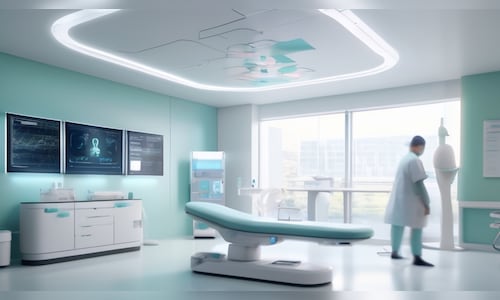
The Role of AI in Healthcare
Ballal said he was excited about the potential of AI in transforming healthcare, particularly in areas like telemedicine and remote monitoring. He stated, “AI can do a lot, but unfortunately, healthcare has been the last to adopt technology.” He noted that the COVID-19 pandemic accelerated the adoption of telemedicine, which had been hindered by regulatory challenges for decades. “One good thing that came out of COVID has been telemedicine and remote monitoring,” he added.
Advancements in Medical Imaging
Geetha Manjunath highlighted the critical role of AI in medical imaging, particularly in radiology. “AI can significantly improve the interpretation of complex medical images,” she explained. She further classified AI applications into operational efficiency and clinical decision support systems, noting that while operational efficiencies are being realised, clinical decision support is still developing. “AI can reduce missed diagnoses and improve doctor productivity by triaging patients effectively,” she said.
Enhancing Neurological Sciences
Laina Emmanuel discussed the advancements in neurological sciences through AI-powered brain mapping. “We use advanced brain mapping to understand connectivity patterns, which aids in diagnosing psychiatric disorders and improving surgical outcomes,” she noted. Emmanuel emphasised that AI enhances the creativity of doctors rather than replacing them, allowing them to tackle complex medical challenges with greater confidence.
AI in Cancer Detection and Rural Healthcare
Manjunath also addressed NIRAMAI’s innovative approach to early cancer detection using thermal sensors. “We measure temperature variations on the chest and convert them into a cancer health report using AI,” she explained. This non-invasive method has proven effective, with over 95% sensitivity in detecting early-stage breast cancer. She highlighted the accessibility of this technology in rural areas, stating, “We have impacted over 250,000 women, detecting three times more cancer than previous records.”
Operational Efficiencies Across Hospital Chains
Ballal shared his experiences implementing AI across Manipal Hospitals. He noted the efficiency gains in patient management, stating, “AI has streamlined processes like appointment scheduling and discharge summaries, reducing discharge times from several hours to just one.” He stressed the importance of integrating systems across hospital chains to enhance patient care continuity.
The Future of AI in Healthcare
Manjunath envisions a future where AI could facilitate preventive healthcare. “Imagine an ATM machine that provides a non-invasive view of your health status,” she suggested. “This could shift the focus from illness care to wellness and preventive health.”
In conclusion, the panellists underscored the transformative potential of AI in healthcare, emphasising the need for continued innovation and integration to improve patient outcomes across India. As AI technologies evolve, they promise to bridge healthcare divides and enhance the overall efficiency of medical services.
Also read: AI alone won’t make you a better doctor, finds study



